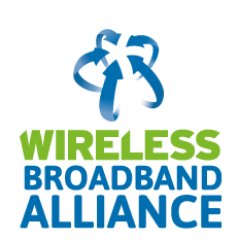The Wireless Broadband Alliance (WBA), in partnership with Maravedis-Rethink, recently published its Annual Industry Report for 2016, revealing that the Internet of Things (IoT), the hyper-dense network and 5G will not be economic or practical without the convergence and coexistence of licensed and unlicensed technologies.
Ultimately, success will depend on unlicensed technologies working in conjunction with licensed networks, enabling new performance levels and flexibility for service providers of all kinds.
The Annual Industry Report revealed that almost 80 percent of respondents believe they will deploy Next Gen Wi-Fi by 2020, driven by the need to improve quality of experience (QoE), reduce churn, and provide seamless access between Wi-Fi networks, and between Wi-Fi and licensed networks. The key challenges for companies in developing and deploying wireless services are creating a sustainable business model, ensuring QoE and device availability.
The report also highlighted that IoT, streaming video/OTT and Wi-Fi calling will be primarily driving future traffic growth; 63 percent of respondents believe that convergence will be important to crucial for network strategies, while 71 percent believe coexistence will be important to crucial.
Operators remain a key partner for cities, compared to infrastructure vendors or systems integrators, and are key in supporting and providing capital expenditure and operating expenditure, maintenance and revenue sharing or generation. It also deals with public expectations, privacy and security are concerns and challenges for cities, and provides connectivity for city services, along with location based services and big data analytics have increased in relevancy and importance.
Furthermore, the WBA’s ‘Roadmap for Coexistence and Convergence in 5G’ market research also supports these findings. While 62 percent of respondents believe 5G will be a combination of licensed and unlicensed technologies, 88 percent of respondents believe that unlicensed spectrum technologies are critical for the development of 5G, due to factors such as enhanced throughput, reduced latency, better coverage and lower costs.
“There has been a long history of innovation within the Wi-Fi community, and our latest Industry Report shows there are no signs of this slowing down,” said Shrikant Shenwai, CEO of the WBA. “5G, smart cities, Wi-Fi and convergence and coexistence between licensed and unlicensed technologies are going to play a huge role in the development of networks and in turn, deliver better services for the consumer.”
Every year, the WBA conducts an industry-wide survey, and puts its findings into a report in order to update the industry on the state of the wireless broadband market.
This year’s report focuses on next generation Wi-Fi, the need for convergence and coexistence between unlicensed and licensed technologies, as well as the development of connected cities and city services.
Earlier this year, The Wireless Broadband Alliance signed a formal agreement with United Cities and Local Governments Committee of Digital and Knowledge-based Cities (UCLG-CDC) to work closely together on the development of Connected City initiatives. United Cities and Local Governments represents and defends the interests of local governments on the world stage, regardless of the size of the communities they serve.
Since its creation in 2005, the UCLG Committee of Digital and Knowledge-based Cities, chaired by the City of Bilbao, has been working to reduce the digital divide and to boost the implementation of the digital local agenda as a means for improving the quality of life of citizens.
The Wireless Broadband Alliance, the UCLG-CDC and the City of Bilbao will immediately collaborate to develop the Connected City Summit at this year’s Wi-Fi Global Congress.
Together, they will create the agenda for the Summit and outline key topics for discussion, inviting cities and governments from around the world to participate and discuss the challenges, opportunities and actions necessary for the development of smart city initiatives.




